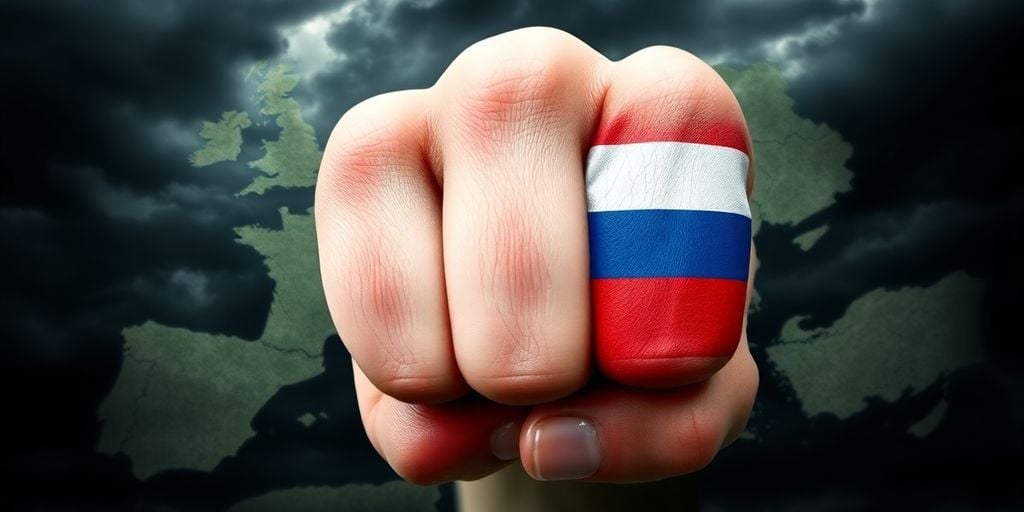Escalating tensions in the Balkans, fueled by Serbia’s nationalistic rhetoric and increasing pro-Russian influence, are raising alarms about regional stability. Recent military alliances and political maneuvers, particularly concerning Kosovo and Republika Srpska, evoke past conflicts and spark fears of renewed violence in the Western Balkans. The situation is exacerbated by disinformation campaigns and a significant regional arms build-up.
Serbia’s Provocative Rhetoric and Alliances
Serbia’s state-controlled media has lauded a new military alliance with Hungary, with Republika Srpska also expressing intent to join. This is portrayed as a counter to a recent military pact between NATO partners Croatia, Albania, and Kosovo. The Serbian Foreign Ministry criticized the latter as a "gross provocation" aimed at isolating Serbia and creating "paramilitary structures" in Kosovo. However, Croatian Defense Minister Ivan Anusic asserted Croatia’s sovereign right to form alliances, stating, "The time has passed when we asked Belgrade what we were going to do."
The "Serbian World" Ambition
Serbia’s expansionist policy, known as the "Serbian World" (Srpski svet), is a re-envisioned "Greater Serbia" project, aiming to consolidate Serbian political and cultural influence. This concept, promoted by figures close to Russian President Putin, seeks to unite Serbs without necessarily involving territorial expansion. Milorad Dodik, the leader of Republika Srpska, has openly embraced this, advocating for independence from Bosnia and Herzegovina and undermining its state structures. His actions, including legislation banning Bosnia and Herzegovina’s police and judiciary from operating in Republika Srpska, are seen as direct affronts to Bosnia’s sovereignty and the Dayton Agreement.
Russia’s Expanding Influence
The stagnation of the EU integration process in the Western Balkans has created a vacuum, allowing external powers like Russia and China to expand their influence. Russia’s close ties with Serbia and Republika Srpska are rooted in:
- Shared anti-Western narratives
- Energy dependence
- Moscow’s backing of Serbia on the Kosovo issue
Serbian media often amplify pro-Russian messages, contributing to the volatile geopolitical landscape.
Echoes of the Past and Risk of Conflict
Serbia’s current rhetoric, reminiscent of Slobodan Milošević’s narrative of "Serb victimhood," is used to justify actions and mobilize citizens. Disinformation campaigns, particularly regarding Kosovo, portray an alleged "ethnic cleansing of Serbs," setting the stage for potential violence. While immediate large-scale conflict is considered unlikely by analysts due to insufficient resources and the overwhelming NATO presence, the region has seen a significant arms build-up:
- Croatia has acquired Rafale fighter planes and is negotiating for Leopard tanks.
- Serbia is purchasing weapons systems from Russia and China.
Key Takeaways
- Serbia’s nationalistic rhetoric and pro-Russian influence are destabilizing the Western Balkans.
- The "Serbian World" concept aims to consolidate Serbian influence, echoing past "Greater Serbia" ambitions.
- Milorad Dodik’s separatist agenda in Republika Srpska, supported by Serbia, threatens Bosnia and Herzegovina’s sovereignty.
- Disinformation campaigns and the portrayal of "Serb victimhood" are used to justify actions and mobilize support.
- Despite a significant arms build-up in the region, immediate large-scale conflict is considered unlikely by analysts, though tensions remain high.
Sources
- Western Balkans peace threatened by new military alliances? – DW – 04/11/2025, DW.
- Croatia Rejects Serbian Objections to New Military Alliance, Independent Balkan News Agency.
- Fact vs. Fiction: Understanding Russia’s Influence in the Western Balkans, ISPI.
- The Bells of a New War: Serbia’s Old Rhetoric as a New Threat to the Balkans – Novinite.com, Novinite.com.
- Balkan Tensions Mount: Serbia’s Rhetoric and Pro-Russian Influence Threaten Regional Peace | Latest Balkan
and Southeast European News, Independent Balkan News Agency.






